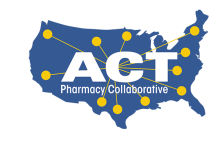Pharmacy SuRGE Questionnaire

Thank you for registering for the virtual Pharmacy SuRGE (Scholarship, Research and Graduate Education) meeting, scheduled for 1:00 – 4:00 pm ET on Tuesday, September 24. In advance of the meeting, you may submit questions for our opening speaker, Dr. Mercedes Rubio, PhD, Chief, Predoctoral Basic Biomedical and Medical Science Training Programs, NIGMS, using the form below. You may also submit questions for consideration during the breakout discussions.
Please submit questions for Dr. Rubio no later than Tuesday, September 10.
List of all fellows - Cohort 1
List fellow - Cohort 1
- name 1
- Name 2




